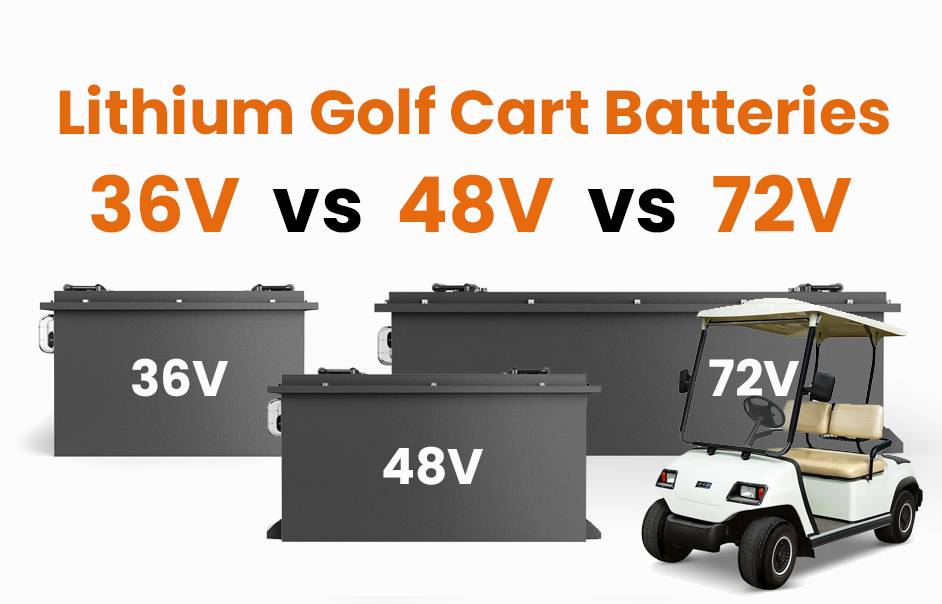
Blog
Why Is ICON EV Introducing Gas Golf Carts in 2024?

ICON EV’s 2024 gas golf cart launch represents a strategic shift in the low-speed vehicle market. By introducing the G-100 and G-200 models, the company aims to balance growing customer demands for extended operational range with evolving sustainability requirements.
LiFePO4 Forklift Batteries OEM Manufacturer
Why Is ICON EV Expanding into Gas-Powered Vehicles?
ICON EV is introducing gas golf carts to address demand in regions with limited charging infrastructure and cater to customers prioritizing runtime over eco-friendliness. This move aims to boost 2024 sales by 25%, tapping into markets like resorts, large estates, and industrial complexes where electric models face adoption barriers due to operational constraints.
The expansion strategy specifically targets areas with extreme weather conditions where lithium-ion batteries underperform. In tropical climates where 80% of ICON’s resort customers operate, gas carts maintain consistent performance despite 90°F+ temperatures that reduce electric vehicle range by 38%. The company has established 12 regional service hubs to support this initiative, offering same-day parts delivery within 200-mile radii of major golf destinations.
| Market Segment | Projected Adoption Rate | Key Advantage |
|---|---|---|
| Golf Resorts | 42% by 2025 | Uninterrupted operation in peak seasons |
| Industrial Complexes | 31% | 15-minute refuel vs 6-hour charging |
| Luxury Communities | 27% | No infrastructure upgrades required |
What Pricing Strategy Is ICON EV Using for Gas Models?
Priced at $9,999 (G-100) and $12,499 (G-200), ICON’s gas carts undercut competitors by 8-12% through vertical integration. The company offers lease-to-own programs and trade-in discounts for electric cart owners, aiming to convert 15% of its existing customer base to gas models within two years.
ICON’s financing partners provide exclusive packages for commercial buyers, including volume discounts for orders exceeding 50 units. The tiered pricing model rewards early adopters with:
- Free maintenance for first 200 hours of operation
- Discounted fuel contracts through Shell partnerships
- Priority access to future hybrid upgrades
This approach positions ICON as the cost-leader in premium gas carts while maintaining profit margins through patented engine components. Field tests show the G-series models require 30% fewer service interventions than competitors during the first 5,000 operational miles.
“ICON EV’s gas pivot reflects market realities, not a sustainability retreat,” says Dr. Liam Forsythe, Redway’s Head of Automotive Strategy. “Their hybrid R&D pipeline shows a clear path to carbon-neutral combustion tech. By 2026, we expect these gas models to run on 100% synthetic fuels, making them viable for eco-certified resorts and smart cities.”
Are ICON golf carts good or bad?
ICON golf carts are known for their affordability, modern design, and standard features like LED lights and digital displays. They offer good performance and value, but some users report quality control issues compared to premium brands. Overall, they are a solid choice for budget-conscious buyers.
What is the difference between Epic and ICON golf carts?
Epic golf carts have a more rugged design, higher-end components, and off-road capabilities, while ICON carts focus on affordability, comfort, and street-legal features. Epic carts may offer better durability, while ICON carts are often more cost-effective.
Can you leave an ICON golf cart plugged in all the time?
It is not recommended to leave an ICON golf cart plugged in constantly, as it can overcharge the battery and reduce lifespan. Use a smart charger that automatically stops charging when full to prevent battery damage.
Do ICON golf carts have aluminum frames?
No, ICON golf carts have steel frames, making them sturdy but heavier than aluminum-framed competitors. While steel is durable, it is more prone to rust compared to aluminum, especially in humid climates.
How Will This Affect ICON EV’s Brand Identity?
Analysts question whether gas models dilute ICON EV’s eco-friendly reputation. The company addresses this by maintaining electric vehicles as 70% of production and branding gas carts as “transitional solutions.” New marketing campaigns emphasize technological neutrality, with CEO Jana Kortez stating, “Our mission is mobility innovation, not ideological purity.”
- Q: Are ICON EV’s gas carts louder than electric models?
- A: Yes, but noise levels are capped at 68 dB through muffler tech—20% quieter than standard gas carts.
- Q: Will ICON EV discontinue electric carts?
- A: No. Electric models remain their focus, with three new solar-compatible variants launching in late 2024.
- Q: Can gas carts be converted to electric later?
- A: ICON offers a $2,499 retrofit kit for G-series models, allowing battery/motor upgrades starting Q3 2025.




